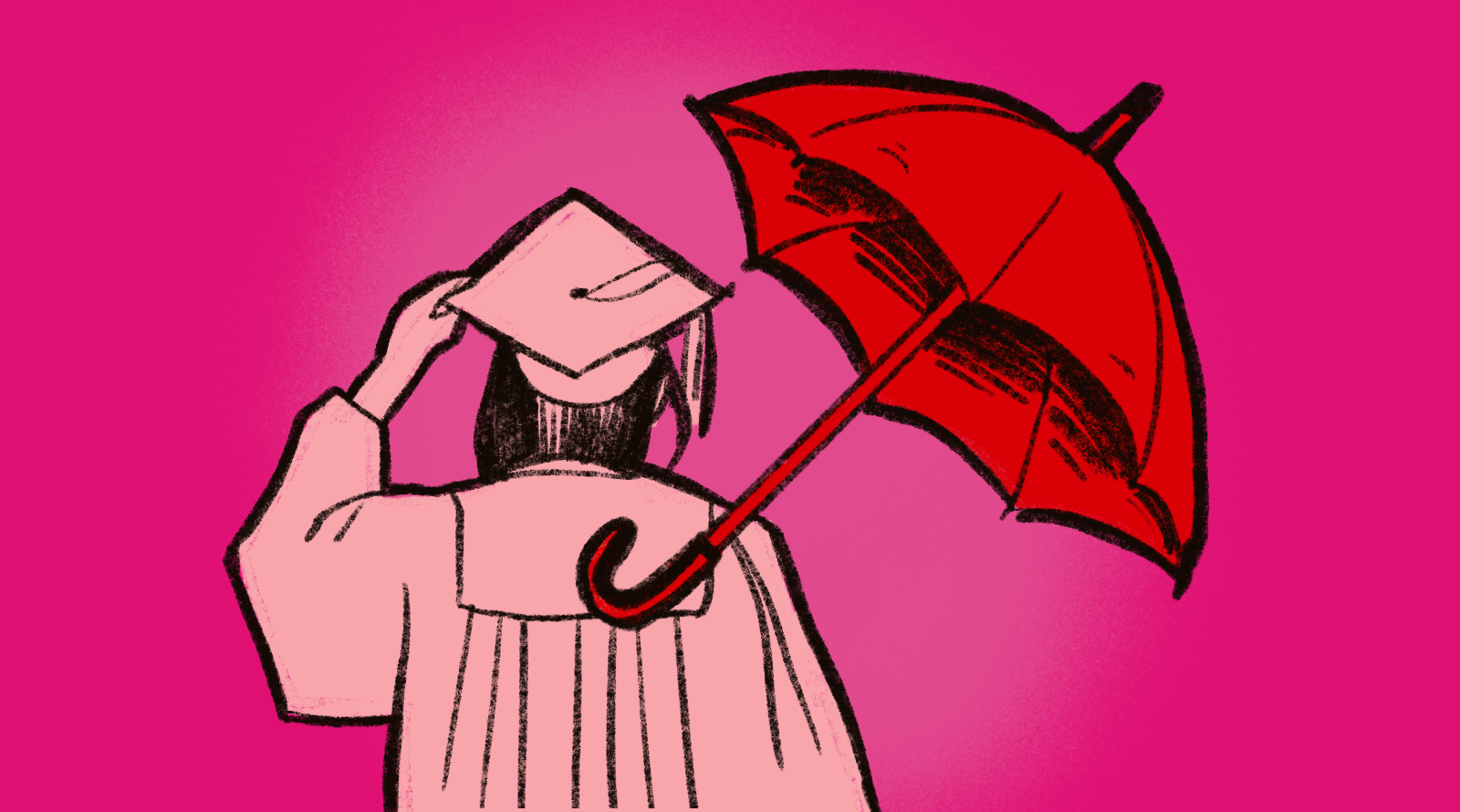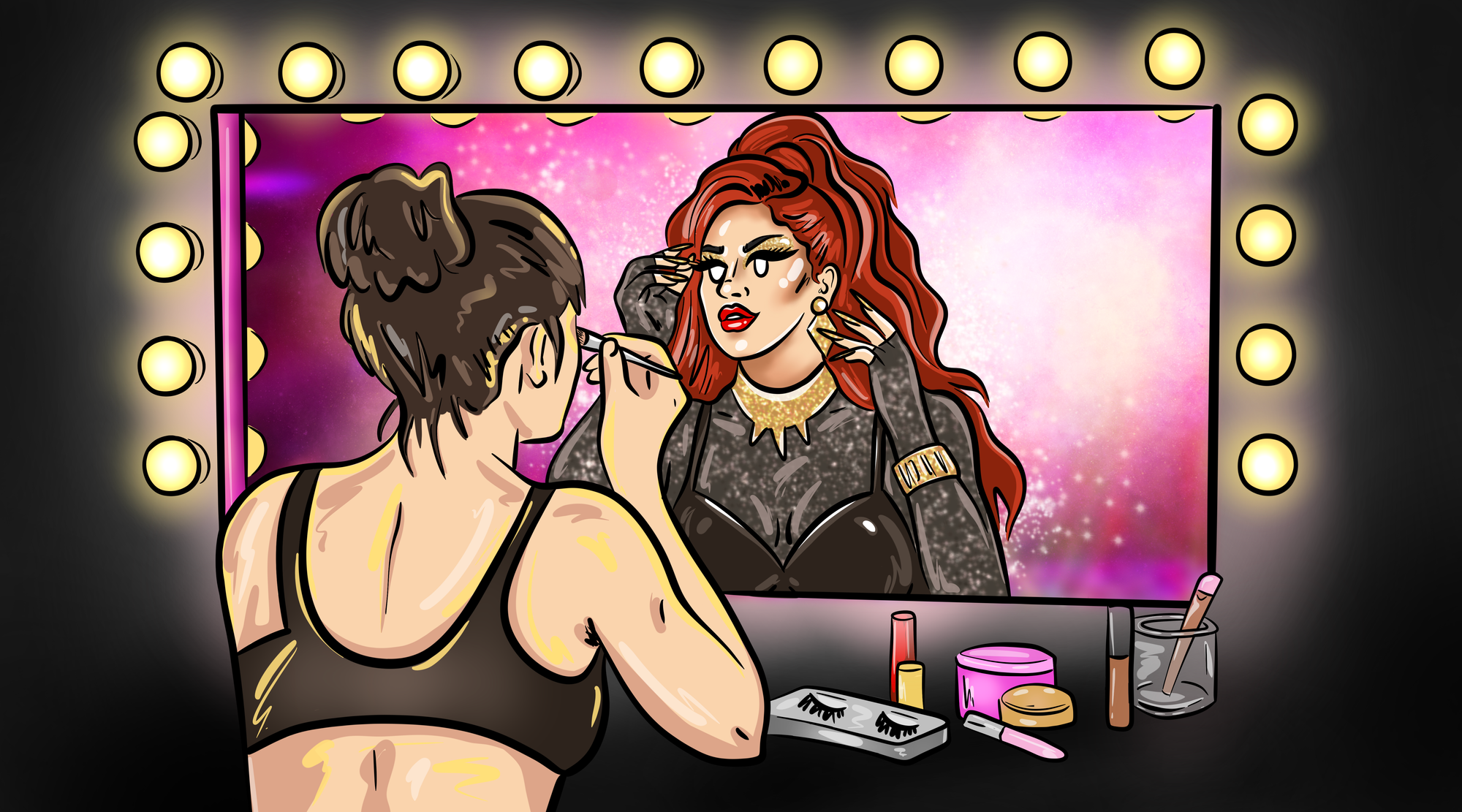Being a sex worker, to me anyway, brought a whole new world of freedom and independence to my life. However, that same freedom and independence does come at a price. Something I struggled with, and I think many of us have at some point, is the cognitive dissonance that can emerge when considering the reality of our work against the internalized whorephobia ingrained by media narratives and general civilian ideas around sex and sex work. The media depiction of sex workers varies so wildly that it adds an additional element of confusion into the mix. Think the Cinderella like story of Pretty Woman followed up by a gritty dark-filtered, exploitative documentary on red light workers living on the streets. It’s a constant pendulum swing, like people can only grasp the most extreme ends of the spectrum, while entirely ignoring every reality that lies between. This became a bit easier to digest when I realised we are just a character to them, a narrative to fill in. A caricature or folk devil.
Folk devils are an interesting concept, first discussed by Stanley Cohen in his 1972 publication Folk Devils & Moral Panic, researching the rise of the Mods and Rockers subculture between the late 1950’s to the 1960’s, during a time of post-WWII upheaval in the UK. The youth of this time naturally rebelled against the stiff upper lip culture forced onto their parents, as the youth do. They started wearing leather jackets, growing out their hair, listening to rock music, and forming their own groups and subcultures where they could succeed in their own values outside of wider moral consensus. The media reported on these groups as criminals and deviants, troublemakers. Creating a specific narrative around them, which could only escalate into a moral panic across the country. The corruption of the youth. Thus, a folk devil was born.
Cohen defined moral panic as when an individual or group of people emerge and become characterised as a threat to the dominant societal and moral values, usually stemming from media narratives surrounding said individual or group/s of people. This is something that’s become very familiar in the United Kingdom, where our media institutions tend to ignore real issues such as government corruption and childhood poverty, instead cycling through a roster of folk devils that are easily swapped out every few weeks. We’ve seen years of media narratives smearing the trans community, villainising refugees, and platforming the most venomous right-wing pundits. Since the pandemic induced boom in online content creation, the media has taken a keen interest in sex work, and as a result, us as sex working individuals. We do make great clickbait after all. The concept of media created folk devils has become such a staple of our media diet: if it’s not one group it will simply be another.
Since the pandemic induced boom in online content creation, the media has taken a keen interest in sex work, and as a result, us as sex working individuals. We do make great clickbait after all.
When tensions rise and wallets thin, it’s easy for sex workers to become scapegoats. I think this is partially due to the outside glamourisation of the industry; civilians have a strange assumption that all sex workers make piles of money and have a disgusting amount of disposable income. This just isn’t reality for most of us, many of us work long hours, have just enough to cover our necessities and maybe a few little treats. It ignores the intersections of the sex worker identity with other marginalised identities: such as disability, race, ethnicity, or location, etc. Which may mean sex work is the best viable income for that individual. It’s easy to see how this perception of us and our work can create a frenzy in people who are struggling in times of austerity – especially if they consider sex work as immoral and subhuman already.
“Why should a whore have it easier than I do?”
Sex workers don’t control the economy, of course. Well, not in a policy making or governmental corporate greed kind of way, anyway. This isn’t to dismiss the ways that sex workers have always been present in governmental spaces, wealthy spaces, and have whispered in the ears of the powerful before emptying their wallets – but in a very literal sense, sex workers are not responsible for a recession or cost-of-living crisis. But at times of turmoil and panic, people need a distraction for the frustration they feel in this helplessness, a scapegoat – a folk devil. Something to direct their panic at, that’s less scary than the reality. Something that lacks the institutional power required to enact any true consequence, for their behaviour.
At times of turmoil and panic, people need a distraction for the frustration they feel in this helplessness, a scapegoat – a folk devil.
This thinking has real world consequences for sex workers. I think most of us can agree that nothing has felt quite right since the pandemic, it’s been harder to earn a living, media accounts get shut down with impunity, a rise in hostility from both potential clients and civilians, bank accounts being frozen. Part of me worries that we might never return to the pre-pandemic days. There has always been stigma around sex work – and for those with different circumstances to myself, this stigma can be far worse than what’s listed here – but the increase in online sex work since the pandemic lockdowns and subsequent media attention on sex work, has amplified this danger for sex workers as a whole. This is an experience I hear echoed by many in the community too.
When speaking to fellow sex working friends in the UK, the consensus seems to be that they have all experienced more social hostility since the cost-of-living crisis hit. Hostility from clients unwilling to play by the same rules as before, hostility from civilians who will never understand our line of work and don’t care to, and even hostility in community social spaces – particularly hostility to sex workers in kink spaces, but that one is a different debate for another time. Being confronted by the range of emotions that are projected onto us gets exhausting, especially when this idea, this fabrication of us, is so incorrect. As a friend discusses below;
“What stays always the same though, is the indignation and pity and rage that civilians feel entitled to perform every time the fact that desperate times call for desperate measures is brought up, even theoretically. Because civilian men are potential clients… they would start bargaining on prices as if you were the last apple of the day, dented, tired, soon to be rotten and thrown away so a little bit is better than nothing. But civilian women – they suddenly become the compass of dignity and morality, talking imaginary words about how even if they were struggling, they would never. They would rather die.”
This particular narrative around sex workers is amplified by sensationalist news articles and tedious think pieces, citing sex work as something dirty and desperate while simultaneously being incredibly lucrative, if you’re willing to sell your humanity. We are treated as though we are getting away with something. It is not treated as simply a normal line of work, that gets the bills paid and puts food on the table. There is a strange disconnect between the character the media has created for us, and the reality that we live in the day-to-day.
This particular narrative around sex workers is amplified by sensationalist news articles and tedious think pieces, citing sex work as something dirty and desperate while simultaneously being incredibly lucrative...
In my own working life, I’m finding that some clients are more demanding, working hours can be longer, and the increase in cost of living eats most of that money up anyway. This is mirrored by friends who mention how some workers are now turning to less secure advertising sites and more precarious working methods, to counter a loss in income alongside some clients being less accommodating. Some have moved into online work because the hostility of in-person work is too much for them now, and vice versa. Some have even quit altogether. The change is palpable to most of us.
“I cam and if I took a shot every time a client asked me to ‘lower your rates we’re in a cost of living crisis’ I’d be dead… when I started a few years ago almost everyone was lovely but now you get so many carrot danglers, dickheads and cheapskates…I’ve definitely noticed a considerable increase in outright misogyny and whorephobia, as well as devaluing our work because of the cost of living [crisis].”
During times of societal and economic unrest it can be so easy to turn on each other, and while it’s also easy to blame everyday civilians for their ignorance, we must consider the influence of the villainization in the media’s portrayal of us. There isn’t an excuse for the discriminatory treatment of sex workers, or any other group of people, ever, but it’s hard not to see that people are responding in panic to what they perceive to be a threat. This doesn’t do much to help the sour taste and real-world violence that this kind of narrative permeates, but it might allow for some understanding. People are fickle creatures after all.
We will continue to do what we always have. We will keep working, we will keep sticking together, we will keep building the community our predecessors dreamt of, but most importantly we won’t be going anywhere – stigma and misleading narratives haven’t stopped us yet. After all, the media has made devils of all of us.
Are you a sex worker with a story, opinion, news, or tips to share? We'd love to hear from you!
We started the tryst.link sex worker blog to help amplify those who aren't handed the mic and bring attention to the issues ya'll care about the most. Got a tale to tell? 👇☂️✨





